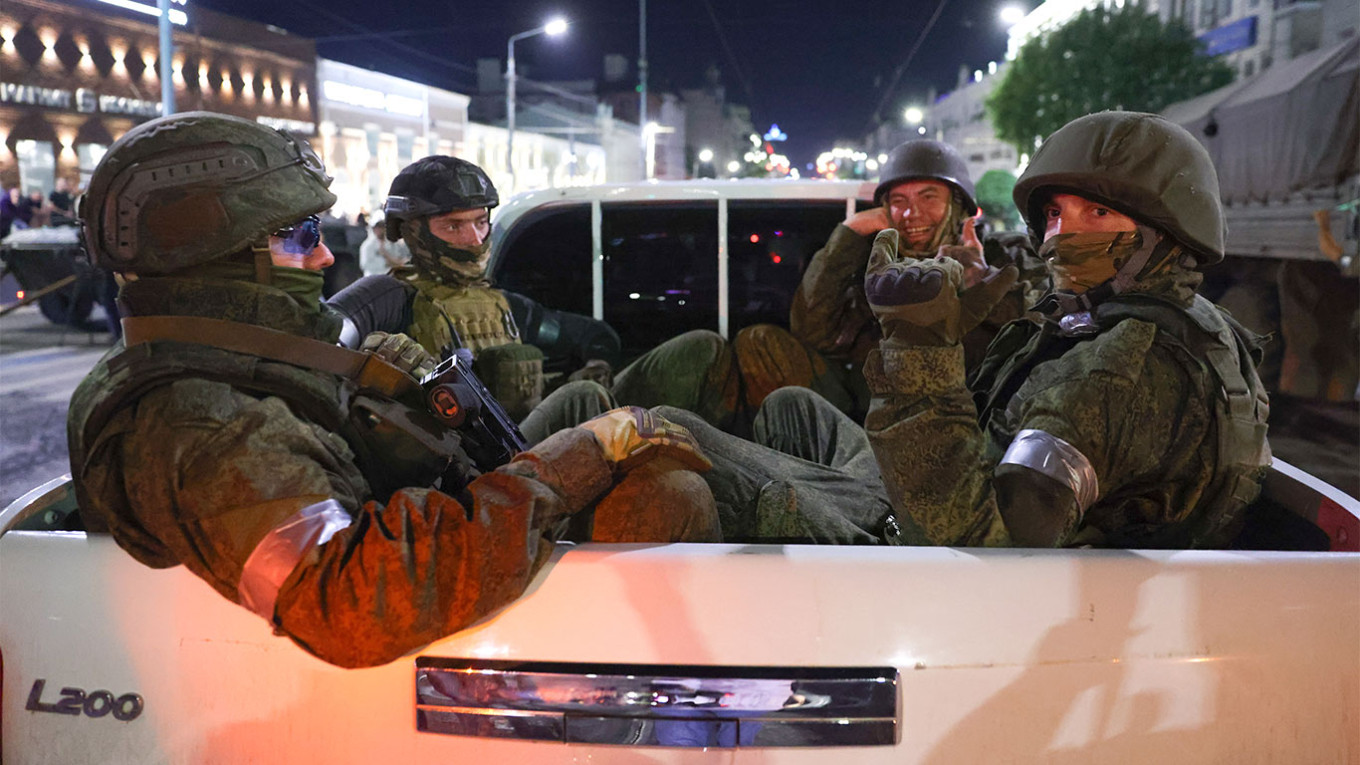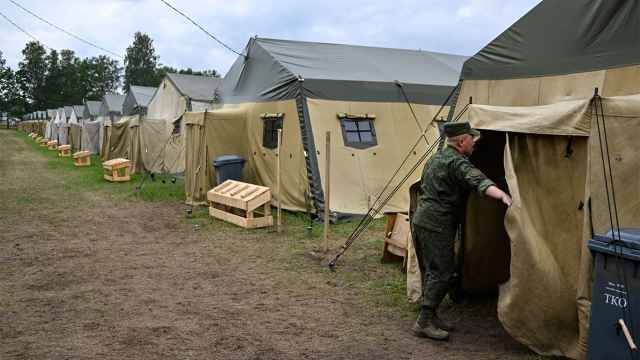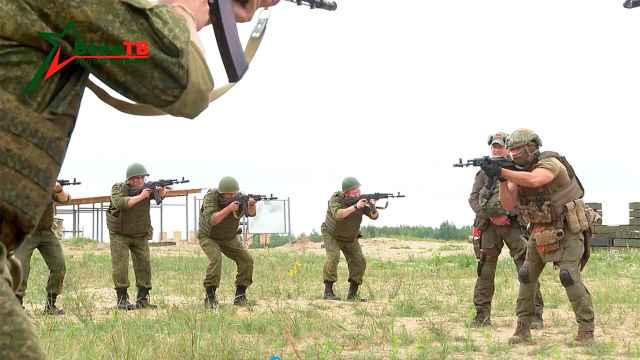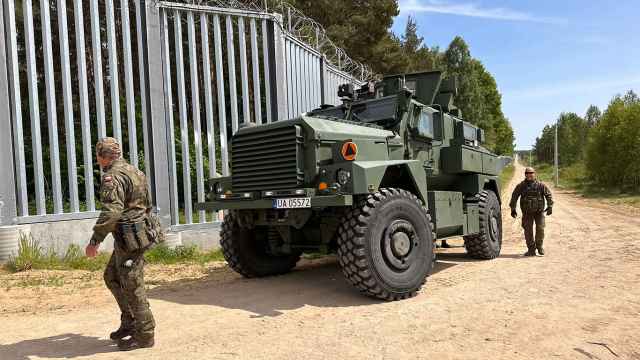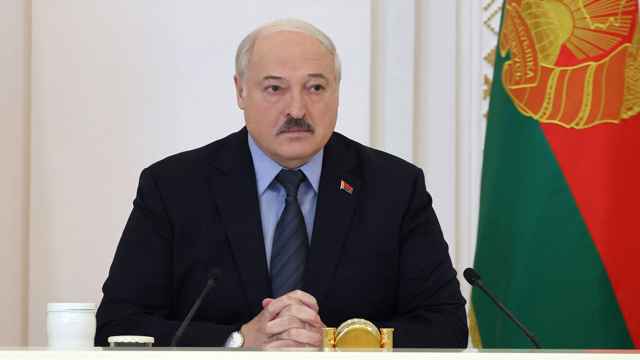Satellite images purporting to show the construction of a camp for exiled Wagner mercenaries after their failed revolt were shared online late Tuesday by independent Belarusian media.
According to the Telegram channel Belarus Golovnovo Mozga, satellite images dated June 27 show what appears to be construction underway at a military compound near the town of Asipovichy, some 100 kilometers southeast of Minsk.
The channel also cited local residents, who claimed they had witnessed “strange activity” involving a “large number” of construction workers near the compound.
“Information in documents indicates that about 1,780 four-bed bunks and 400 two-seat toilets are required by tomorrow,” an unnamed forestry worker was quoted as saying, without providing details about the documents.
It was not possible to independently verify the report.
On Monday, the independent Russian news outlet Vyorstka — citing local authorities and relatives of Wagner fighters — reported that Belarus had started building camps for Wagner mercenaries.
According to the report, the camps are expected to accommodate 8,000 fighters.
Meanwhile, Belarusian lawmakers on Wednesday ratified an agreement on joint Russian-Belarusian “combat training centers” at existing military compounds, according to state media.
The news follows Belarusian President Alexander Lukashenko’s confirmation Tuesday that Wagner leader Yevgeny Prigozhin had arrived in Belarus as part of a deal to stop Wagner’s rebellion over the weekend.
“I could use such a unit in the army,” Lukashenko said, instructing his defense minister to discuss Wagner’s possible deployment in Belarus.
Prigozhin on Monday said Lukashenko had offered Wagner mercenaries to “work in a lawful jurisdiction.”
Russian President Vladimir Putin gave Wagner fighters the choice of signing contracts with the Russian army or leaving for Belarus following their armed revolt over the weekend.
A Message from The Moscow Times:
Dear readers,
We are facing unprecedented challenges. Russia's Prosecutor General's Office has designated The Moscow Times as an "undesirable" organization, criminalizing our work and putting our staff at risk of prosecution. This follows our earlier unjust labeling as a "foreign agent."
These actions are direct attempts to silence independent journalism in Russia. The authorities claim our work "discredits the decisions of the Russian leadership." We see things differently: we strive to provide accurate, unbiased reporting on Russia.
We, the journalists of The Moscow Times, refuse to be silenced. But to continue our work, we need your help.
Your support, no matter how small, makes a world of difference. If you can, please support us monthly starting from just $2. It's quick to set up, and every contribution makes a significant impact.
By supporting The Moscow Times, you're defending open, independent journalism in the face of repression. Thank you for standing with us.
Remind me later.


